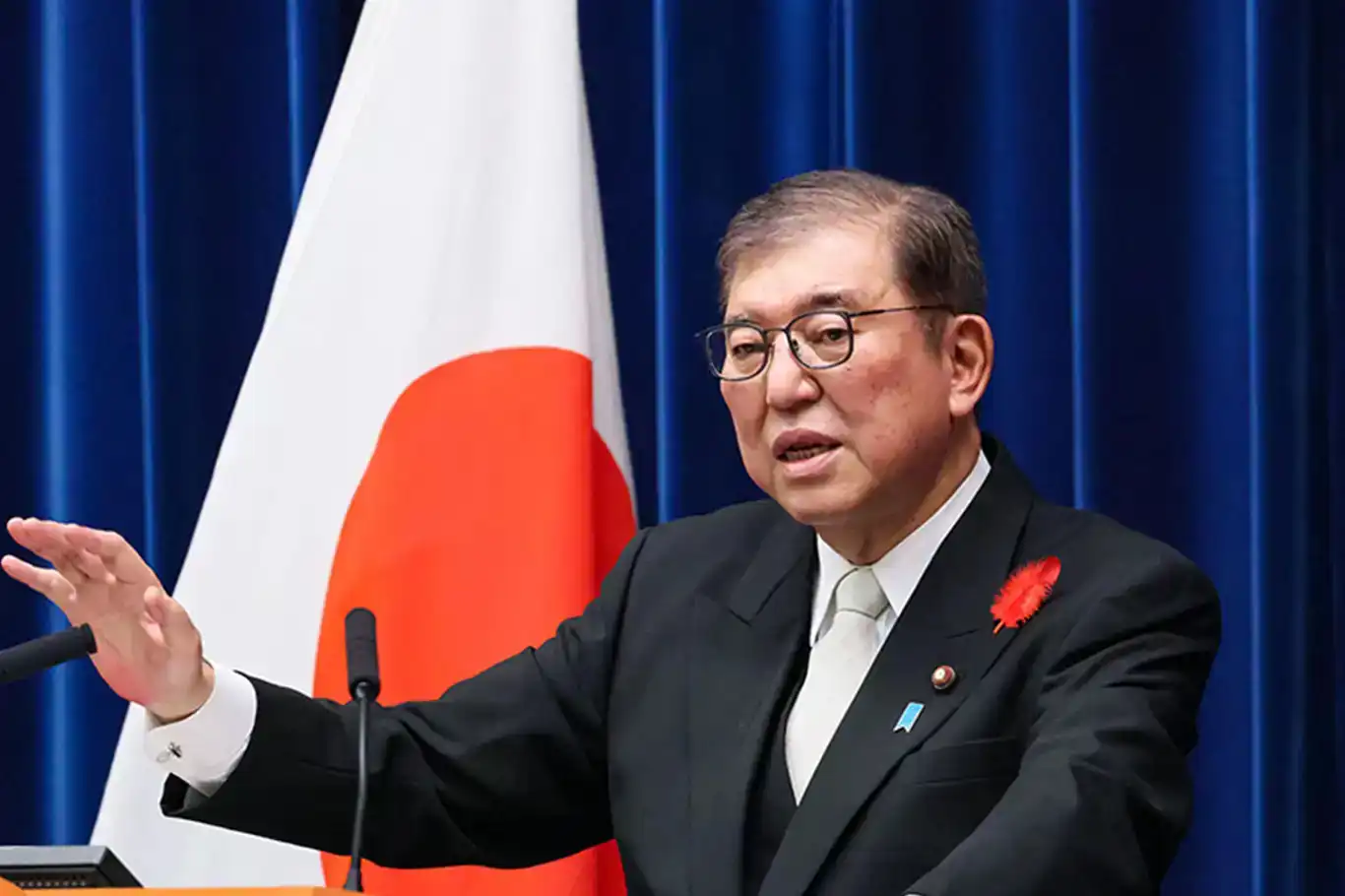Japanese PM announces his resignation weeks after election defeat


The Liberal Democratic Party suffered a heavy defeat in July, leading to increasing calls for his resignation.
Japanese Prime Minister Shigeru Ishiba announced his resignation as president of the Liberal Democratic Party (LDP) just weeks after the ruling coalition suffered a historic defeat in the July elections.
Ishiba's decision to resign on Sunday came after he initially resisted calls from his party to step down following the election defeat, saying he wanted to ensure the proper implementation of a tariff agreement with the US.
“With Japan having signed the trade agreement and the [U.S.] president having signed the executive order, we have passed a key hurdle,” Ishiba said in a statement on Sunday. “I would like to pass the baton to the next generation,” he added.
Ishiba will remain prime minister until the party elects a new LDP president. His resignation deepens the political uncertainty facing the world's fourth-largest economy. After taking office last October, the 68-year-old politician witnessed election defeats that wiped out his coalition's majority in both houses of parliament.These losses, fueled by voters' concerns over rising living costs, made it even harder for Ishiba's government to implement its policy goals. Amid growing political instability in the country, Ishiba was pressured to resign by mostly right-wing party rivals who demanded he take responsibility for the results of the Senate elections held in July.
According to reports, Japan's agriculture minister and former prime minister met with Ishiba on Saturday evening to try to persuade him to resign. Among Ishiba's possible successors are conservative Sanae Takaichi, who narrowly defeated Ishiba in last year's LDP second-round election, and current agriculture minister Shinjiro Koizumi, whose family has long been involved in Japanese politics.
Kazutaka Maeda, an economist at the Meiji Yasuda Research Institute, said, “Following the LDP's consecutive election losses, political pressure on Ishiba increased, making his resignation inevitable.” Maeda added, "Koizumi and Takaichi are seen as the most likely candidates as potential successors. While Koizumi is not expected to make major changes, Takaichi's expansionary fiscal policy and cautious approach to interest rate hikes may attract the attention of financial markets," he added.
Ishiba's resignation came just days after US President Donald Trump signed an executive order on Thursday to reduce tariffs on Japanese-made cars imported into the US from 27.5% to 15%. This order formalized a previous agreement announced in July. Under the terms of the agreement, a 15% tariff will be applied to most of Japan's exports to the US.
However, speaking on Saturday, Tokyo's chief customs negotiator said the broad trade agreement was not yet “finalized” because US presidential decrees on tariffs on pharmaceuticals and semiconductors had not yet been published.
Escalation of the situation
After the LDP officially summarized the election results on September 2 and explained the reasons for the defeat, the internal political situation worsened when almost the entire party leadership announced Ishiba's intention to resign: LDP Secretary-General and Deputy Secretary-General Hiroshi Moriyama, party executive committee chairman Shunichi Suzuki, and LDP political council chairman Itsunori Onodera. Since Ishiba had the authority to make personnel decisions, they left the resignation decision to Ishiba's discretion.
Following the report's release, the LDP launched an internal poll among its lawmakers and representatives of 47 regional party organizations on whether to hold an early election for the LDP presidency. According to party rules, the support of half of those participating in the poll is required for this decision to be made.
Prime Minister elections
Japan's prime minister is elected by members of parliament. Until the early elections in the fall of 2024, it was known that the LDP leader would almost automatically become prime minister, as the LDP and its coalition partner Komeito held a majority in the important lower house of parliament. However, the LDP and Komeito have now lost their majority in both the lower and upper houses.
Opposition parties were unable to form a coalition due to disagreements on many issues. The LDP and Komeito managed to form a minority government, but they must negotiate with smaller opposition parties when making decisions in parliament. Therefore, the LDP leader is still seen as the leading candidate for prime minister. (lLKHA)
LEGAL WARNING: All rights of the published news, photos and videos are reserved by İlke Haber Ajansı Basın Yayın San. Trade A.Ş. Under no circumstances can all or part of the news, photos and videos be used without a written contract or subscription.
Spain’s Prime Minister Pedro Sánchez unveiled a sweeping set of measures on Monday aimed at stopping the ongoing genocide in Gaza and supporting the Palestinian people.
Hospitals across the Gaza Strip have reported six more deaths in the past 24 hours due to severe famine and malnutrition, including two children, highlighting the worsening humanitarian crisis under Israel’s ongoing blockade.
A Palestinian resistance operation at Ramot Junction in occupied Al-Quds (Jerusalem) on Monday, September 7, resulted in the elimination of four Israeli soldiers and injuries to more than 20 others, according to local sources and eyewitness accounts.
At least 21 Palestinian civilians were killed and dozens injured in relentless Israeli airstrikes and machine-gun fire across the Gaza Strip since dawn on Monday, medical sources reported, as Israel’s genocidal campaign against the besieged Palestinian enclave continues unabated.